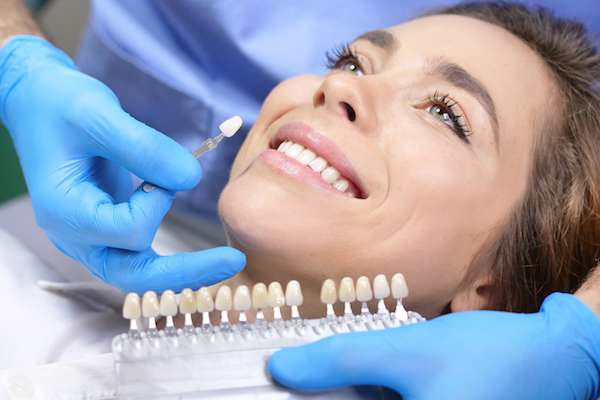Truths and Myths From a Cosmetic Dentist
 The term “cosmetic” causes many people to brush off the idea of visiting a cosmetic dentist to fix serious oral health problems. Oftentimes, this is the result of major misconceptions about possible treatments and the feeling that procedures are purely about fixing appearance. However, this form of dentistry usually goes far beyond aesthetic appeal. It can help address a variety of oral problems and re-establish a sense of self-confidence in patients. Here are the top myths about cosmetic dentistry, why they can easily be debunked, and a few solid truths that can encourage patients to speak with a dentist about cosmetic options.
The term “cosmetic” causes many people to brush off the idea of visiting a cosmetic dentist to fix serious oral health problems. Oftentimes, this is the result of major misconceptions about possible treatments and the feeling that procedures are purely about fixing appearance. However, this form of dentistry usually goes far beyond aesthetic appeal. It can help address a variety of oral problems and re-establish a sense of self-confidence in patients. Here are the top myths about cosmetic dentistry, why they can easily be debunked, and a few solid truths that can encourage patients to speak with a dentist about cosmetic options.
Top myths to topple
Information travels quickly in today’s rapidly expanding world of social media. Unfortunately, some of the news that circulates the fastest is completely unfounded. While researching for a cosmetic dentist, patients may encounter plenty of rumors and myths about getting treatment. These are the most common myths worth debunking.
All treatments only have cosmetic purposes
A lot of good can come out of purely cosmetic treatments, including a patient’s restored confidence in smiling. However, many treatments and procedures go deeper than the surface. Many offer a renewed, wholesome smile that protects teeth from damage and decay in the future. For example, veneers are often used to even out a smile and fill in gaps, but they also provide extra support for weakened enamel and stabilize teeth with chips and cracks that are causing pain. With cosmetic treatments, a patient can improve oral health by eliminating a real issue while simultaneously rejuvenating a beautiful smile.
Procedures are always major
Some procedures done by a cosmetic dentist are actually very simple and require little time. These add only minor details to a smile, such as whitening teeth or scraping away stained spots and replacing them with an adhesive resin. Yes, there are procedures that require several months from start to finish, but a dentist will discuss the risks and benefits and create a treatment plan so that the patient knows exactly what to expect.
Treatments weaken teeth
The opposite is true. Many treatments end up adding appliances or dental implants that only increase structural support in the mouth and stimulate healing. A dentist may tell patients that one treatment is a better fit than another to preserve and nurture optimal oral health.
Basic facts to understand
To truly eliminate fears about seeing a cosmetic dentist, debunking myths is only half the battle. Understanding the basic facts is just as important. This type of dentistry:
- Is safe
- Has been well-practiced and studied
- Uses artificial appliances that are matched to the color of natural teeth so that there is no visual difference
- Does not damage teeth
All forms of dentistry have changed significantly in the past few decades to keep up with modern demands. There is no need to worry about treatments that are out of date or techniques that have not been proven to provide positive results.
Conclusion
Patients who are still unsure about the negative myths should talk to a regular dentist about procedures. A discussion about the facts can undermine false information and help a patient decide on the right type of treatment.
Request an appointment or call Farmington Family Dentistry at 505-295-4075 for an appointment in our Farmington office.
Recent Posts
With the latest treatments in cosmetic dentistry, it is easy to have a white, bright smile. Everybody wants to have sparkling teeth, but it is difficult to achieve it without professional help. That is why teeth-whitening treatments are everywhere. If you are thinking about getting a cosmetic dentistry treatment to treat your stained teeth, here…
While veneers are technically considered cosmetic treatments, a cosmetic dentist may describe additional benefits to getting them added to the teeth. Dental veneers can both improve the look of the smile and help keep teeth healthy. These thin, customized shells cover the front of the teeth and can be customized to match the color of…
One of the treatment options a cosmetic dentist may employ to improve the appearance of a person's smile is dental bonding. Also known as tooth bonding, dental bonding is a procedure that involves applying a tooth-colored resin to the teeth to achieve the desired result. When a cosmetic dentist performs dental bonding, the dentist applies…


